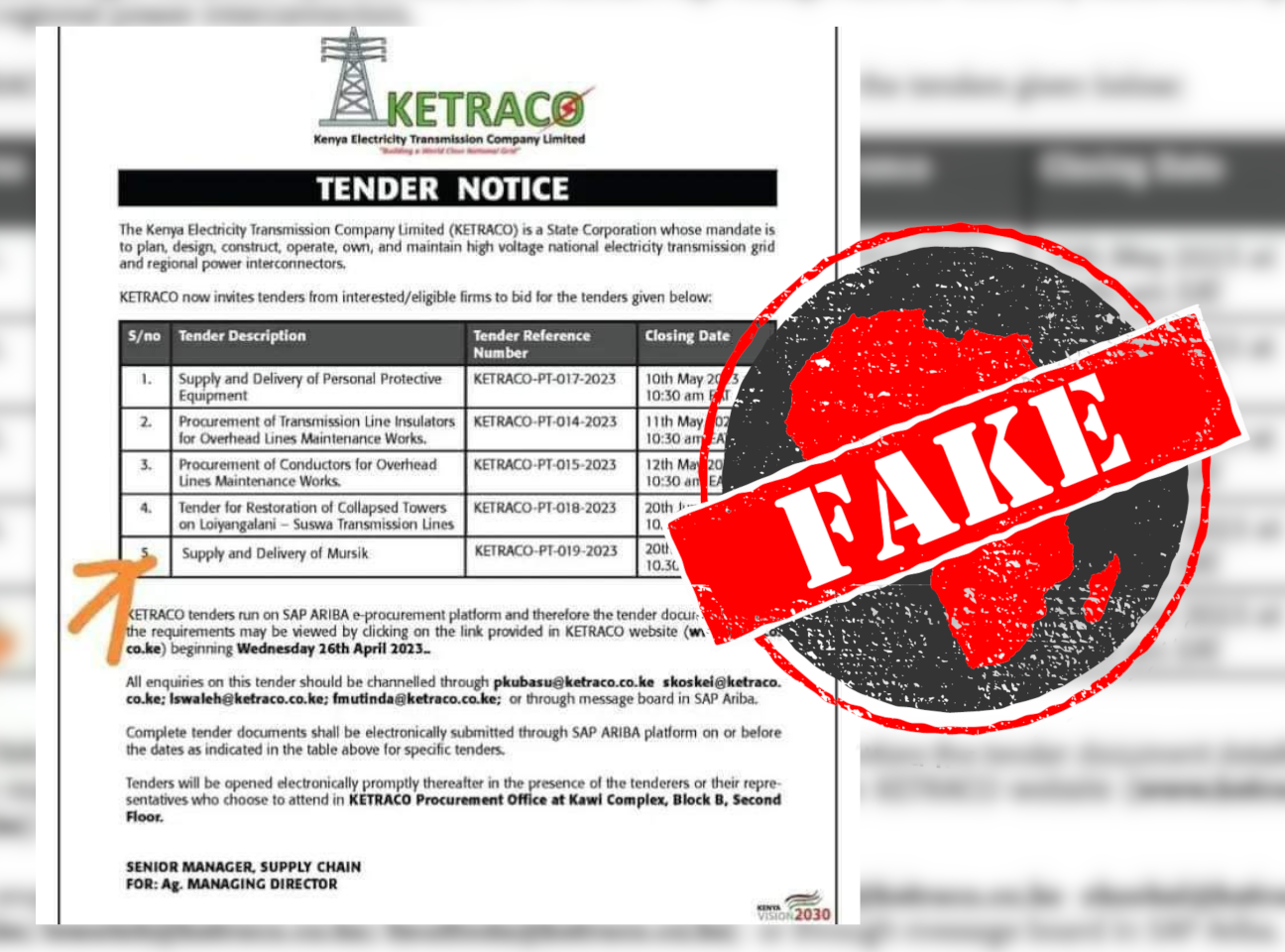IN SHORT: A convincing-looking document is circulating on social media in Kenya, apparently showing the electricity transmission firm inviting tenders for an unusual item - a traditional fermented milk product. But it's been photoshopped.
“KETRACO now invites tenders from interested/eligible firms to bid for the tenders given below,” reads what appears to be a tender document from the Kenya Electricity Transmission Company Limited (Ketraco).
The document lists five tender items and appears to be signed off by the senior supply chain manager on behalf of the acting managing director.
The last item on the list is “supply and delivery of mursik”. Mursik is a traditional fermented milk drink, consumed by the Kalenjin people of Kenya.
The gist of the claim is that top positions in many public companies in Kenya are being dominated by people of the Kalenjin community that president William Ruto belongs to.
It has been posted on Facebook here, here, here, here, here, here, here, here, here and here.
So is this really a legitimate tender document from the electricity supplier? We checked.

Tender document doctored
On 27 April 2023 Ketraco announced that it had open tenders on its website. It tweeted: “KETRACO has Open Tenders on the website. Visit https://bit.ly/418KeWO for more information.”
The tweet included two tender documents, one listing two items and the other four.
We compared the document circulating on social media with the official documents Ketraco posted on its Twitter page and website. It appears to have been doctored to include a fifth item, “supply and delivery of mursik”.
On 9 May Ketraco posted the official and the fake documents side-by-side on Twitter, with the word “fake” posted in red across the one.
“Please follow the instructions on the tender from KETRACO Website https://bit.ly/418KeWO,” reads the tweet.
Ketraco is not inviting tenders to supply and deliver mursik.
Republish our content for free
For publishers: what to do if your post is rated false
A fact-checker has rated your Facebook or Instagram post as “false”, “altered”, “partly false” or “missing context”. This could have serious consequences. What do you do?
Click on our guide for the steps you should follow.
Publishers guideAfrica Check teams up with Facebook
Africa Check is a partner in Meta's third-party fact-checking programme to help stop the spread of false information on social media.
The content we rate as “false” will be downgraded on Facebook and Instagram. This means fewer people will see it.
You can also help identify false information on Facebook. This guide explains how.


Add new comment